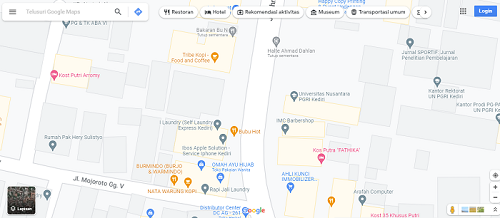Management Survey at the Arema Ngunut Academy, Tulungagung Regency, 2023-2024
DOI:
https://doi.org/10.2024/ns.v3i04.2025_P559-568Keywords:
Management, coaching, achievements, footballAbstract
This study aims to analyze the management and performance development process of the Arema Ngunut Football Academy School (SSB) in Tulungagung Regency, which has seen a decline in student numbers each year. Using a descriptive qualitative approach and survey method, this research involves the organization’s chairman and head coach as subjects. Data collection was conducted through in-depth interviews, observations, and documentation from February to April 2024, with data validity tested using source triangulation techniques and data analysis through an interactive model. The results indicate that the SSB management is run by the general chairman, secretary, treasurer, and coaches. Performance development is carried out in a tiered and sustainable manner, without initial selection, with training sessions held three times a week. Students are charged a fee per session as the main source of funds, in addition to operational funds from the local government. The main challenge in performance development is the full-day school system, which reduces student training consistency and impacts the operational funding of the organization
Downloads
References
Fadilah, R. (2023). The Role of Football Academies in Developing Youth Talent. International Journal of Sports Science, 14(2), 75-89.
Fauzi, A., & Setiawan, A. (2023). Organisational Development in Youth Football Academies. Journal of Sports Management, 12(1), 45-58.
Kurniawan, D. (2022). Physical Education and its Impact on Cognitive and Personality Development. Journal of Educational Research, 10(4), 112-125.
Nugroho, A. (2023). Football Academies as a Platform for Talent Development in Indonesia. Journal of Sport Management, 17(1), 98-110.
Nurhadi, R., Mustofa, F., & Arifin, J. (2023). Parental Involvement in Youth Sports: A Case Study. International Journal of Sports Science, 15(3), 120-133.
Purnomo, D., & Hartono, A. (2022). Funding Challenges in Youth Football: Insights from Local Academies. Sports Economics Review, 8(2), 190-205.
Ramadhan, A., & Suryadi, D. (2023). The Development of Football in Indonesia: Challenges and Opportunities. Indonesian Journal of Sports Studies, 9(3), 45-59.
Saputra, R., & Rahmawati, E. (2023). Talent Identification and Development in Youth Football. Journal of Physical Education and Sport Pedagogy, 19(1), 85-95.
Suherman, A., & Wibowo, T. (2023). Managing Youth Football Programs in Indonesia. Journal of Sport and Health Research, 11(4), 200-215.
Suryani, T., & Wijaya, R. (2023). Management and Consistency Issues in Youth Football Training Programs. Journal of Sports Coaching, 11(3), 132-145.
Wardani, M., & Prasetyo, Y. (2022). Marketing Strategies for Local Sports Academies. International Journal of Sports Marketing, 14(2), 90-105.
Yulianto, E. (2023). Government Policies and Sports Development in Indonesia. Journal of Physical Education and Sport Pedagogy, 18(2), 92-107.
Yulianto, H., & Susanto, B. (2023). Coaching Techniques and Athlete Performance in Youth Football. Journal of Coaching Education, 17(3), 110-125.
Downloads
Published
How to Cite
Issue
Section
License
Copyright (c) 2024 Ryan Rachmat Ramadhan; Dhedhy Yuliawan, Rizki Burstiando

This work is licensed under a Creative Commons Attribution-ShareAlike 4.0 International License.
http://creativecommons.org/licenses/by-sa/4.0/















